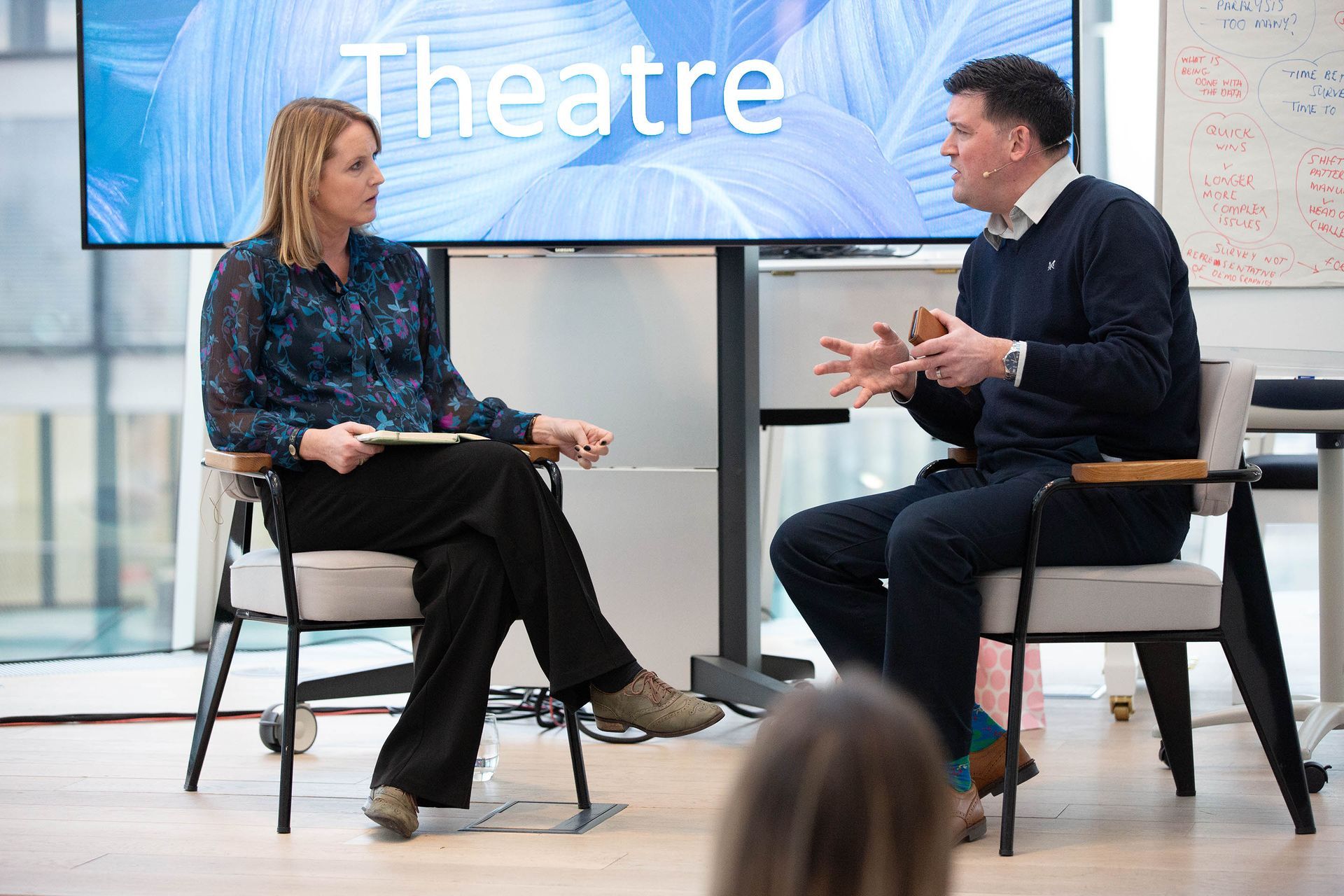NOTHING is a given in these times, of course, but if the roadmap out of lockdown is followed then we’ll move soon, tentatively, from crisis to recovery.
From closed shutters, empty pubs and restaurants to some semblance of normality as we longingly remember it. So society’s cautious, phased re-opening, in the UK at least, will certainly be the underlying theme of media coverage over the next two to three months.
I, sorry, we need a haircut, a springtime pint in a beer garden and a new pair of jeans, so we’ll be drawn to conversations about the re-opening. We consumers need information from credible sources and it’s something we want to talk about. Editors know this of course and journalists will be dispatched to find out more for you, seeking out those consumer-facing companies preparing to welcome people once more.
And herein lies the opportunity for businesses. To tell the world that you’re open, fighting fit and raring to go. To be the media's example that illustrates the wider story. And if you grasp this opportunity, it could give your business that priceless competitive edge this summer. Why is this?
As a shopper or restaurant-goer, say, what will be going through your mind on April 5 (hairdressers open, some shops re-opening in England) or on April 26 (gyms and all shops re-opening and cafes, pubs etc opening indoors)?*
Are you ready to explore, find out which shops are still open? Will you be traipsing around town with kids in tow without a preconceived idea of where to visit? You’re meeting your mate for lunch and you’ll just see where’s open when you get there?
Perhaps not. In uncertain times, consumers seek assurance. They want to know what’s safely open and what to expect, and indeed surveys have identified the 'rise of the anxious consumer'. Overall, says Ey's future consumer index, it appears UK consumers are gearing themselves up to live more risk-averse lives. More than two-thirds (67%) believe it will take months or longer before they feel comfortable going to a restaurant, with similar sentiments for visiting cinemas and bars/pubs. In other words, pandemic-influenced consumer attitudes will now test your business’s marketing strategy.
"More than two-thirds (67%) believe it will take months or longer before they feel comfortable going to a restaurant, with similar sentiments for visiting cinemas and bars/pubs"
Think loyal customers and prospective customers. The former follows you online , gets your newsletter or gives you a friendly call to make sure your business is still alive and kicking. The latter doesn't have that relationship with you and now faces an additional barrier to choosing you over competitors, that of uncertainty. For this second group, the prospective customers, the onus on businesses to raise brand awareness and provide assurance is now greater. The pandemic has shaken things up in your constant battle for market share because the dust has yet to settle. We’re blinking into a new dawn.
So if you haven’t already, you certainly need to review your marketing strategy. We have shared previously how the pandemic has influenced content marketing. Marketers are changing their messaging and editorial calendars. They’re investing in their website and search engine optimisation (SEO).
And public relations or, more specifically, media engagement should also form an important pillar of your marketing strategy this next quarter, in my view. If you’re uncertain about this, ask yourself this question: the potential customer who knew of your brand but has yet to buy from you; do they know that your business has survived the pandemic?
Journalists want examples of businesses that have weathered Covid-19 and will be re-opening. Will you be that example pictured and quoted in the local newspaper or on television, or will it be your competitor?
Businesses, organisations, are a massive part of our lives. Our hearts have sunk in recent months on witnessing the demise of our favourite stores, restaurants and leisure facilities. This next few months could be a life-affirming springtime tale of rebirth and recovery. Will your business be a part of that story?
* As of 20 March 2021
A media brief
If you're targeting the media as part of your recovery marketing, you will want to be fully prepared for the questions journalists will ask. Here are a few typical questions that could be put to you
- What controls will you have in place to manage the risks of transmission on re-opening?
- What challenges do you foresee in re-opening after being closed for so long?
- Commentators predict a ‘coiled spring’ recovery. Do you expect a really busy period, and that you’ll bounce back?
- Are there any products or services you won’t be offering now, because of safety concerns or changes in consumer behaviour because of Covid?
- Have you created new products or services to meet changes in demand influenced by the pandemic?
- What impact has the pandemic had on your business?
- What impact has the pandemic had on your mental health and wellbeing?
- Do you think it’s right to re-open now? Too early or too late?
For more advice on media relations post-lockdown, please email me at tim.walsh@branaghpr.com




